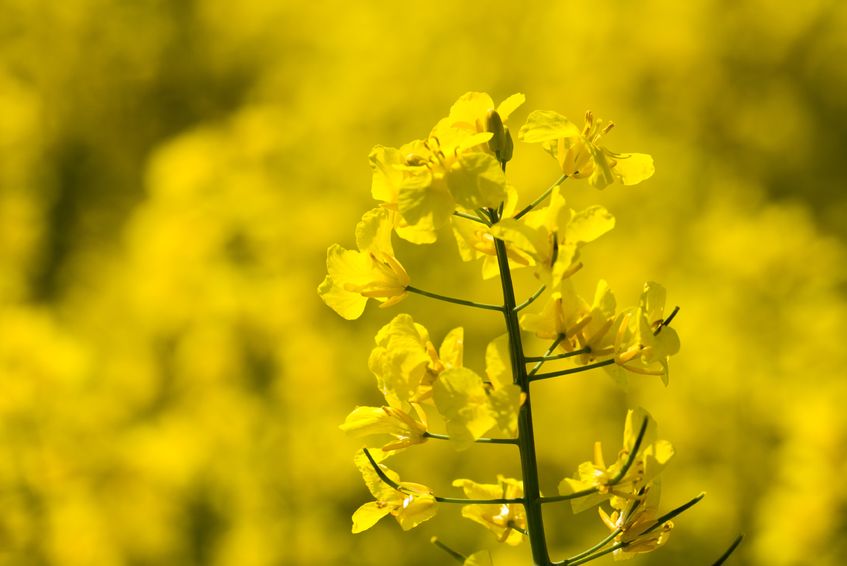Government rejects NFU emergency application of neonicotinoid to battle stem flea beetle

Defra has rejected an emergency application made by the NFU for growers to use banned neonicotinoid seed treatments on oilseed rape this autumn.
The decision will come as a major blow to the NFU, who wanted the emergency use of neonicotinoids to tackle the threat of cabbage stem flea beetle (CSFB) in oilseed rape.
The NFU’s application was for a limited proportion of the oilseed rape crop in England and was meant to be specifically targeted to the fields at greatest risk from CSFB.
The types of neonicotinoids that were applied for are thiamethoxam (Cruiser OSR) and clothianidin (Modesto).
The application was reviewed last week by the UK Expert Committee on Pesticides (ECP).
The ECP said: "There is insufficient information to ensure that use will be limited only to those areas where there is a danger or threat to plant protection.
"And the stewardship arrangements proposed by the applicant do not offer adequate assurance that the use will be controlled in an appropriate fashion."
'Grave need of access'
NFU Vice President Guy Smith said: "We know farmers facing pest pressure are in grave need of access to an effective way of preventing CSFB from destroying valuable oilseed rape crops.
"This is why the NFU put in this application for the targeted emergency use of neonicotinoid seed treatments.
"CSFB numbers have seen a dramatic increase since restrictions were imposed on the use of neonicotinoid seed treatments by the European Commission according to research published by Fera.
"The CSFB threat cannot be effectively addressed by any other means of pest control. Without access to these insecticides, farm businesses are unsustainable; farmers must be able to produce healthy and profitable crops.
"The damage caused by CSFB has contributed to a reduced area planted with oilseed rape in England which is estimated to be up to 14 per cent down in the 2015–16 season.
"The neonicotinoid seed treatments are effective in reducing the damage caused by the pest CSFB and prevents the destruction of a crop which is economically and environmentally important for farmers.
"With emergency use of neonicotinoids granted in eight countries across the EU in 2015, we are conscious that British farmers will be operating at a disadvantage without access to this important insecticide.
"As the resilience of food production becomes more important than ever it is vital that regulation of plant protection products is based on sound science and evidence.
"The decreasing availability of these products is hampering British farmers’ ability to produce the wholesome and affordable British food that shoppers in this country expect."
'Threat to crucial pollinators'
Welcoming the news, Friends of the Earth bee campaigner Dave Timms said: "The Government’s decision to reject this application is great news for Britain’s bees.
"Allowing farmers to use banned bee-harming pesticides would have been a real threat to these crucial pollinators."
"The Expert Committee on Pesticides has given a damning verdict on the applications. We hope the NFU will get the message and give up trying to bring back these dangerous chemicals.
"This refusal is extremely welcome, but the applications and evidence submitted are all still secret. They must be released immediately.
"Ministers must now push for the ban on these chemicals to be made permanent."








